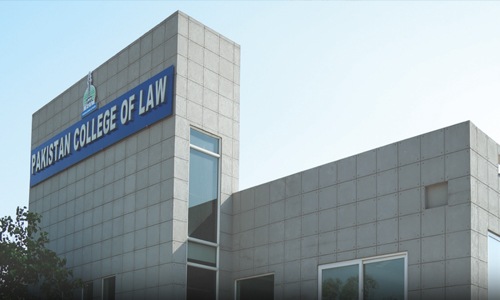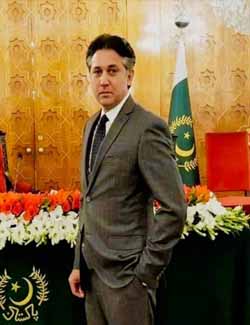Mr. Usman Arif
Usman Arif is a Senior Partner of the firm, Arif n’ Arif , a law firm, named after his father who has served as a Judge of Supreme Court of Pakistan. Following his graduation from Government College Lahore, he enrolled in Pakistan College of Law to pursue a bachelor's degree in law before earning a master's degree in law from George Washington University in the United States. In addition to practising law, he also has the honour of teaching law at several Universities in Lahore and he currently is part of the visiting faculty of Pakistan College of Law. He entered the legal profession in 2000–2001 and he deal with cases relating to Labour, Services, Civil, Criminal, Banking, and Constitutional Law.
As a partner of the firm he handles administrative issues as well as professional responsibilities. He has played an important role in building clientele and for development of the firm. During his time at CLM (April-December 2001), Mr. Usman, Assisted partners in research and preparing cases, drafted memoranda on corporate issues and advised and represented different national/multinational Banks and handled lending and recovery operations. Mr. Usman was also appointed as Deputy Attorney General for Pakistan from 2018 to 2022, and he was given the responsibility of representing the Government of Pakistan in the Supreme Court's Lahore Registry. As the DAG, he was also given the specific responsibility of handling Military Estate Cases in Lahore High Court and Supreme Court of Pakistan.
During 2004-2009, Mr. Usman was appointed as the legal advisor for Data Ganjh Baksh Town. Currently he is representing Dubai Islamic Bank (DIB), Askari Commercial Bank, Zarai Tariaqiati Bank Ltd. (ZTBL), SME Bank Ltd, Haji Karim Bakhsh Ltd. (HKB) , Civil Aviation Authority (CAA), Shell Pakistan Ltd. Pakistan Atomic Energy Commission (PAEC), Auqaf Department, Govt. of Punjab, Silk Bank and he is recently appointed as Senior Legal Advisor for Lahore Development Authority (LDA) in Supreme Court. Moreover, he has researched on issues involving Banking Laws, Election Laws, Constitution, Labor Laws, Marriages, Landlord Tenant Relationship, Shariah Laws, Criminal Laws and Civil Laws.



